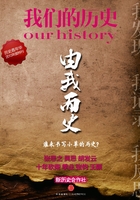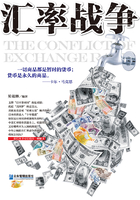The exercises connected with the dedication were held in Music Hall, in Boston, and the great hall was packed from top to bottom with one of the most distinguished audiences that ever assembled in the city. Among those present were more persons representing the famous old anti-slavery element that it is likely will ever be brought together in the country again. The late Hon. Roger Wolcott, then Governor of Massachusetts, was the presiding officer, and on the platform with him were many other officials and hundreds of distinguished men. A report of the meeting which appeared in the Boston Transcript will describe it better than any words of mine could do:--
The core and kernel of yesterday's great noon meeting, in honour of the Brotherhood of Man, in Music Hall, was the superb address of the Negro President of Tuskegee. "Booker T. Washington received his Harvard A.M. last June, the first of his race," said Governor Wolcott, "to receive an honorary degree from the oldest university in the land, and this for the wise leadership of his people." When Mr. Washington rose in the flag-filled, enthusiasm-warmed, patriotic, and glowing atmosphere of Music Hall, people felt keenly that here was the civic justification of the old abolition spirit of Massachusetts; in his person the proof of her ancient and indomitable faith; in his strong through and rich oratory, the crown and glory of the old war days of suffering and strife. The scene was full of historic beauty and deep significance. "Cold" Boston was alive with the fire that is always hot in her heart for righteousness and truth. Rows and rows of people who are seldom seen at any public function, whole families of those who are certain to be out of town on a holiday, crowded the place to overflowing. The city was at her birthright fete in the persons of hundreds of her best citizens, men and women whose names and lives stand for the virtues that make for honourable civic pride.
Battle-music had filled the air. Ovation after ovation, applause warm and prolonged, had greeted the officers and friends of Colonel Shaw, the sculptor, St. Gaudens, the memorial Committee, the Governor and his staff, and the Negro soldiers of the Fifty-fourth Massachusetts as they came upon the platform or entered the hall. Colonel Henry Lee, of Governor Andrew's old staff, had made a noble, simple presentation speech for the committee, paying tribute to Mr. John M. Forbes, in whose stead he served. Governor Wolcott had made his short, memorable speech, saying, "Fort Wagner marked an epoch in the history of a race, and called it into manhood." Mayor Quincy had received the monument for the city of Boston. The story of Colonel Shaw and his black regiment had been told in gallant words, and then, after the singing of Mine eyes have seen the glory Of the coming of the Lord, Booker Washington arose. It was, of course, just the moment for him. The multitude, shaken out of its usual symphony-concert calm, quivered with an excitement that was not suppressed. A dozen times it had sprung to its feet to cheer and wave and hurrah, as one person. When this man of culture and voice and power, as well as a dark skin, began, and uttered the names of Stearns and of Andrew, feeling began to mount. You could see tears glisten in the eyes of soldiers and civilians. When the orator turned to the coloured soldiers on the platform, to the colour-bearer of Fort Wagner, who smilingly bore still the flag he had never lowered even when wounded, and said, "To you, to the scarred and scattered remnants of the Fifty-fourth, who, with empty sleeve and wanting leg, have honoured this occasion with your presence, to you, your commander is not dead. Though Boston erected no monument and history recorded no story, in you and in the loyal race which you represent, Robert Gould Shaw would have a monument which time could not wear away," then came the climax of the emotion of the day and the hour. It was Roger Wolcott, as well as the Governor of Massachusetts, the individual representative of the people's sympathy as well as the chief magistrate, who had sprung first to his feet and cried, "Three cheers to Booker T. Washington!"
Among those on the platform was Sergeant William H. Carney, of New Bedford, Mass., the brave coloured officer who was the colour-bearer at Fort Wagner and held the American flag. In spite of the fact that a large part of his regiment was killed, he escape, and exclaimed, after the battle was over, "The old flag never touched the ground."
This flag Sergeant Carney held in his hands as he sat on the platform, and when I turned to address the survivors of the coloured regiment who were present, and referred to Sergeant Carney, he rose, as if by instinct, and raised the flag. It has been my privilege to witness a good many satisfactory and rather sensational demonstrations in connection with some of my public addresses, but in dramatic effect I have never seen or experienced anything which equalled this. For a number of minutes the audience seemed to entirely lose control of itself.
In the general rejoicing throughout the country which followed the close of the Spanish-American war, peace celebrations were arranged in several of the large cities. I was asked by President William R. Harper, of the University of Chicago, who was chairman of the committee of invitations for the celebration to be held in the city of Chicago, to deliver one of the addresses at the celebration there. I accepted the invitation, and delivered two addresses there during the Jubilee week. The first of these, and the principal one, was given in the Auditorium, on the evening of Sunday, October 16. This was the largest audience that I have ever addressed, in any part of the country; and besides speaking in the main Auditorium, I also addressed, that same evening, two overflow audiences in other parts of the city.















